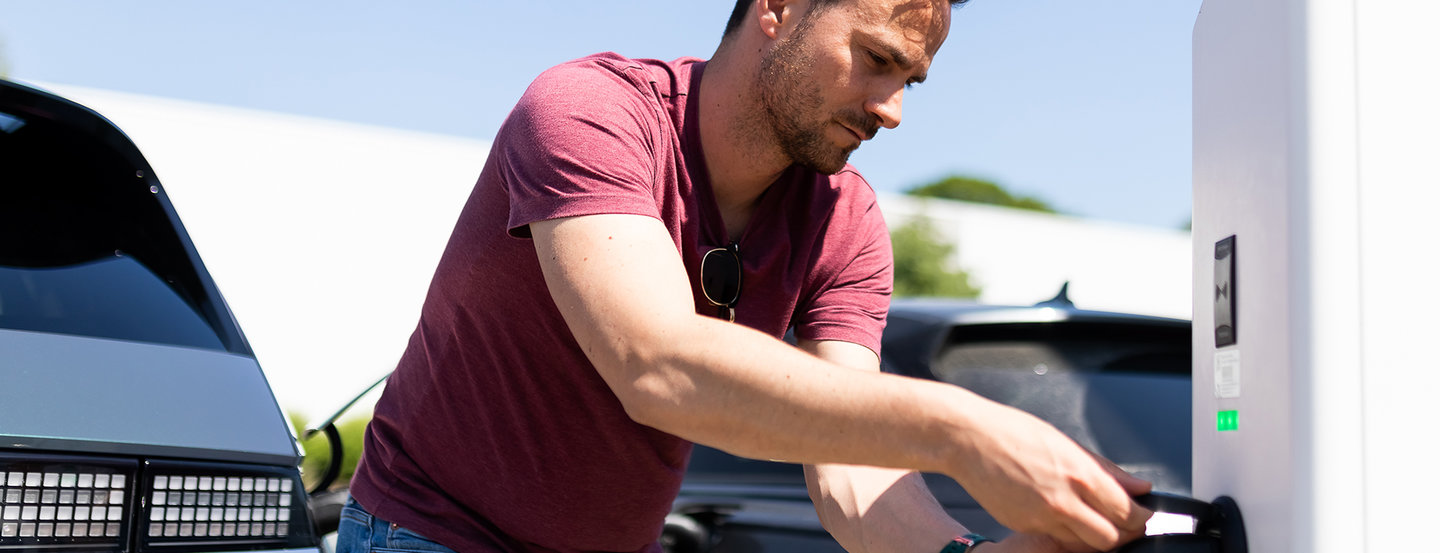
Ecological project
On the ecological front, we are mainly active around sustainable mobility and a number of 'Green Deals'. These are voluntary agreements between (private) partners and the Flemish government to jointly achieve a certain environmental objective. In the field of sustainable mobility, we mainly focus on electric driving, according to the principle of Electric First.
Electric First: choice for sustainable mobility
For several years now, we have had an Electric First policy for our commercial vehicles. We replace existing petrol and diesel cars with the most ecological alternative currently available. Is a 100% electric model satisfactory in terms of driving range or payload? Then electric is our first choice.
In recent years, we replaced several hundred petrol and diesel commercial vehicles - including lease cars - with fully electric cars, plug-in hybrid models or natural gas (CNG) vehicles. In the coming years, we will renew around 800 service vehicles in total in this way. For us, opting for 'as green as possible' and 'maximally electric' means saving more than 1 million litres of fossil fuel a year in the long run.
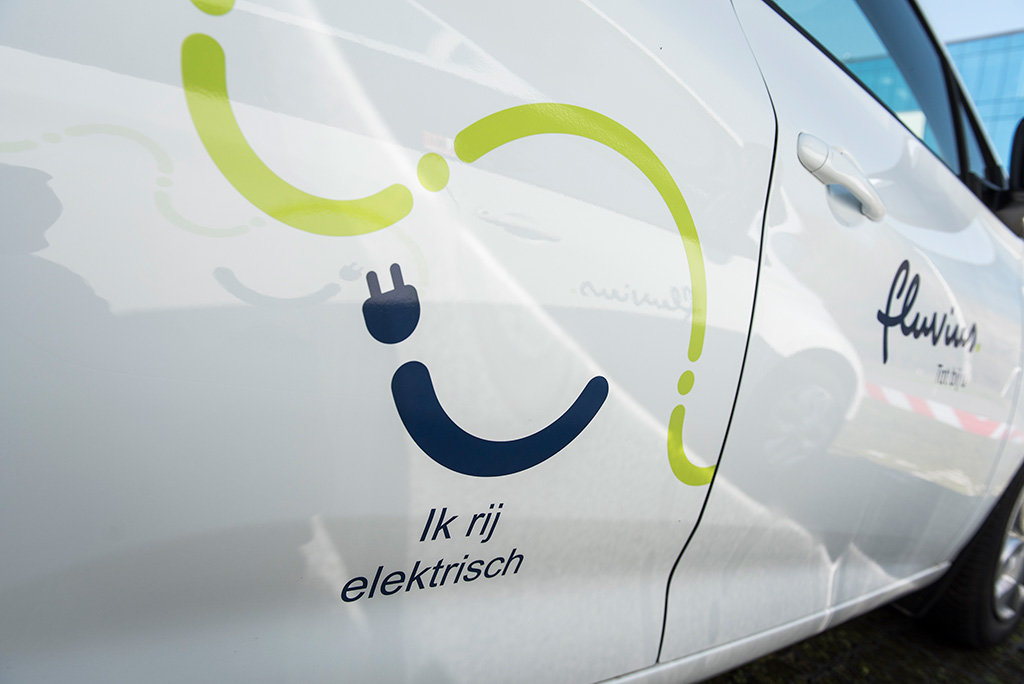
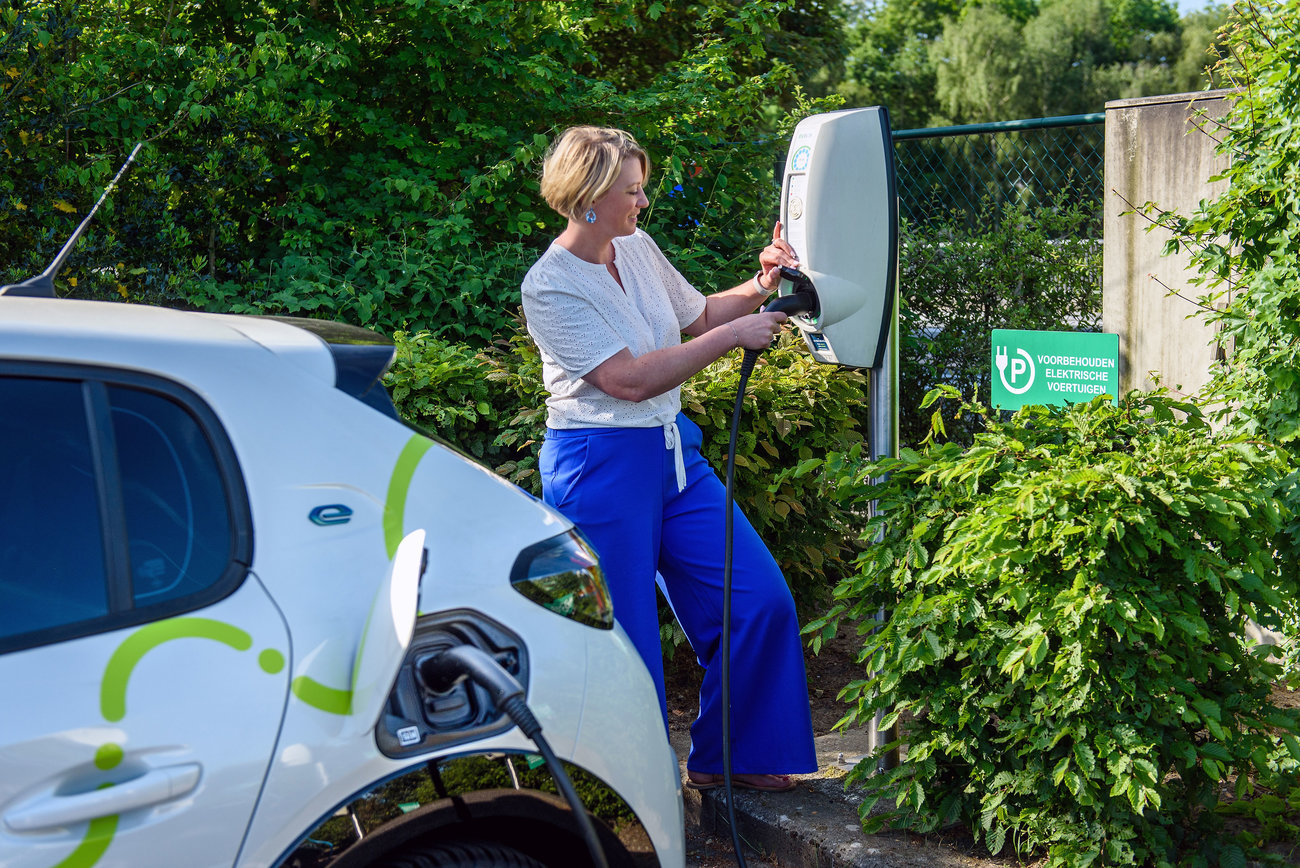
1,000,000, that's how many litres of fossil fuel we want to save by opting for sustainable mobility.
Renewed waste policy for contractors
In 2021, together with the relevant internal stakeholders, we launched a renewed waste policy for contractors. Under this, contractors themselves ensure that all waste materials released during their work for us are processed according to the rules. Examples include residual waste, paper and cardboard, hard plastics, asbestos and old public lighting fixtures, but also copper cables, mixed metals, etc. Exceptions are materials that meet the criteria of the circular economy and materials to be recovered that are specifically mentioned in the technical specifications. The implementation of this renewed waste policy is currently ongoing and will be finalised in 2023.
Processing public lighting fixtures via custom company
Circular materials can be reused a number of times and eventually broken down in an environmentally friendly way. One example is old public lighting fixtures. Contractually, we got permission to gradually process the waste stream of old fixtures ourselves through the principle of circular economy.
Back in 2021, the local social economy company W-Technics in Zele conducted some pilot tests with the dismantling of these lamp fixtures. Thanks to better sorting at the source, the company ensures a cleaner recycling and waste stream.
This pilot project received a positive assessment both financially and socio-ecologically and was continued in 2022. Therefore, we will expand and perpetuate this treatment principle. For the remaining seven contractors in this contract, we are looking into starting a similar exercise.
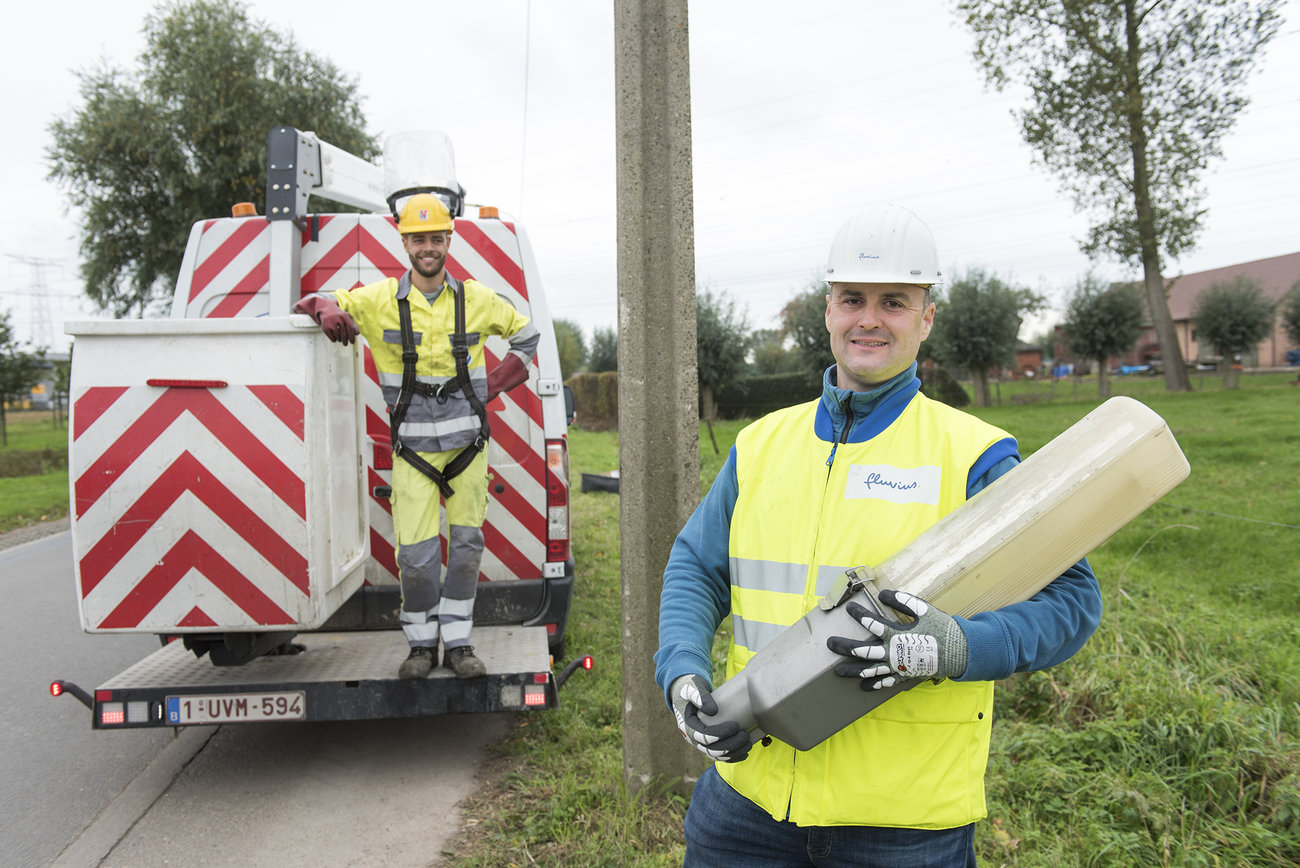
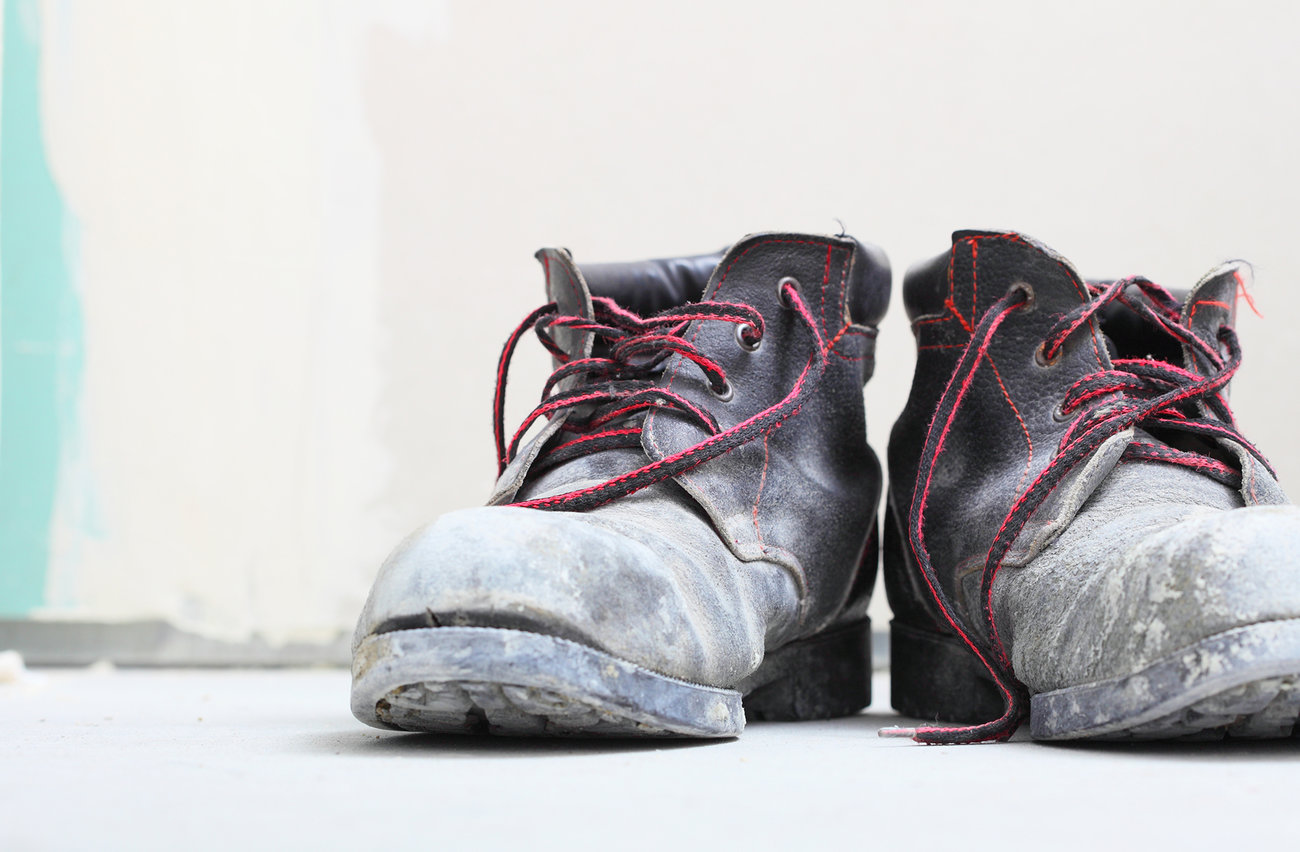
Circular purchases: processing old clothes
In 2019, we submitted a project to Flanders Circular to sustainably process old work clothes. We eventually found a circular solution for the old T-shirts and polo shirts, where the clothes were first shredded into high-quality fibres and then processed into new yarns. From these, we had new clothes made.
The design is based on eco-design principles, allowing for recycling once again. Employees could buy these clothes to raise funds for Food Banks. In spring 2022, as part of Kom Op Tegen Kanker (Cancer Foundation), we also offered a jumper and socks made from the same circular yarn. This project has now been completed.
In late 2022, another small initiative was launched in which selected safety shoes and boots will also be collected and recycled through partner Circular Footwear Alliance.
Sustainability Competence Centre
Our organisation has signed a charter on Corporate Social Responsibility (CSR). As part of this, we are guided by the principles of socially responsible procurement (SRI) when purchasing work materials, goods, services and ICT. Examples of these principles are sustainability and social justice. We screen and assess (candidate) suppliers in terms of ecological and social aspects. When selecting and awarding procurement files, we take these criteria into account wherever possible.
To put this procurement policy into practice, we set up a Sustainability Competence Centre (CCD). In it, we gather and share as much knowledge as possible about sustainability and how to integrate it in a procurement project. We wrote a practical guide that provides useful tips and tricks for each phase of the procurement procedure to go further in sustainability. The Sustainability CCD also advises colleagues on specific procurement aspects and organises brainstorming sessions on this theme.
The CCD takes into account these five focus areas:
- Positive ecological footprint
- Local growth
- Respect for working conditions
- Social economy
- Circular procurement
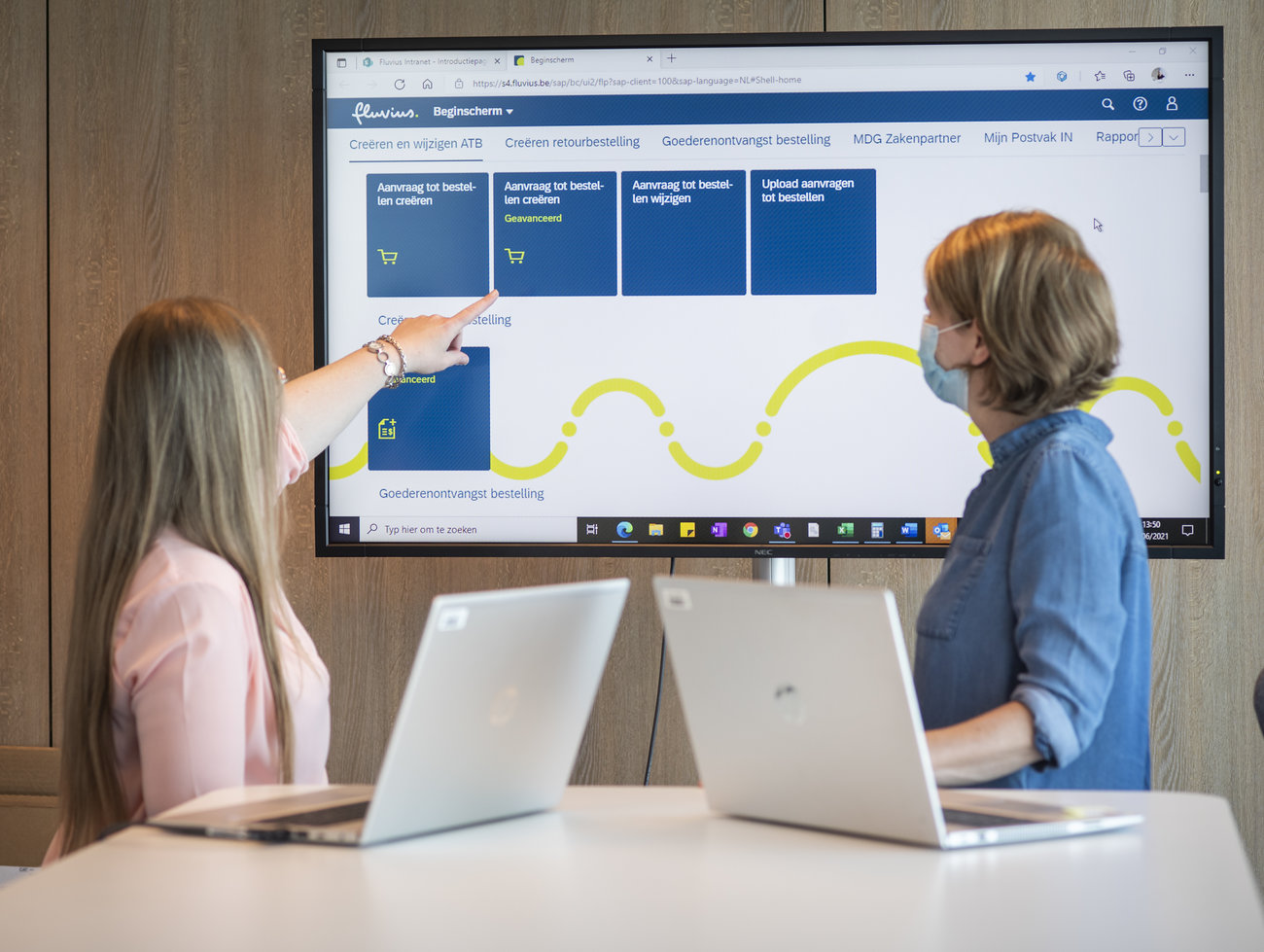
In 2022, the CCD welcomed Fluvius' CSR coordinator as a new member. Besides additional knowledge sharing, this provides a stronger connection with the Fluvius CSR Board. From that wider cooperation, the CCD also cooperated on assignments relating to, for example, EU Taxonomy and the European Investment Bank.
In the coming years, we will focus even further on these themes, as well as on the UN Sustainable Development Goals (SDGs), namely sustainable procurement and our own carbon footprint..
By 2023, we aim to embed CSR commitment even more 'upstream' in Fluvius procurement policy. For instance, the CCD actively participates in the Procurement Planning Forum, identifying procurement dossiers that can have a substantial impact on our CSR ambitions. In those pilot files, for instance, we can set CSR selection and award criteria in the sourcing process, or include Ecovadis scores in the implementation phase.